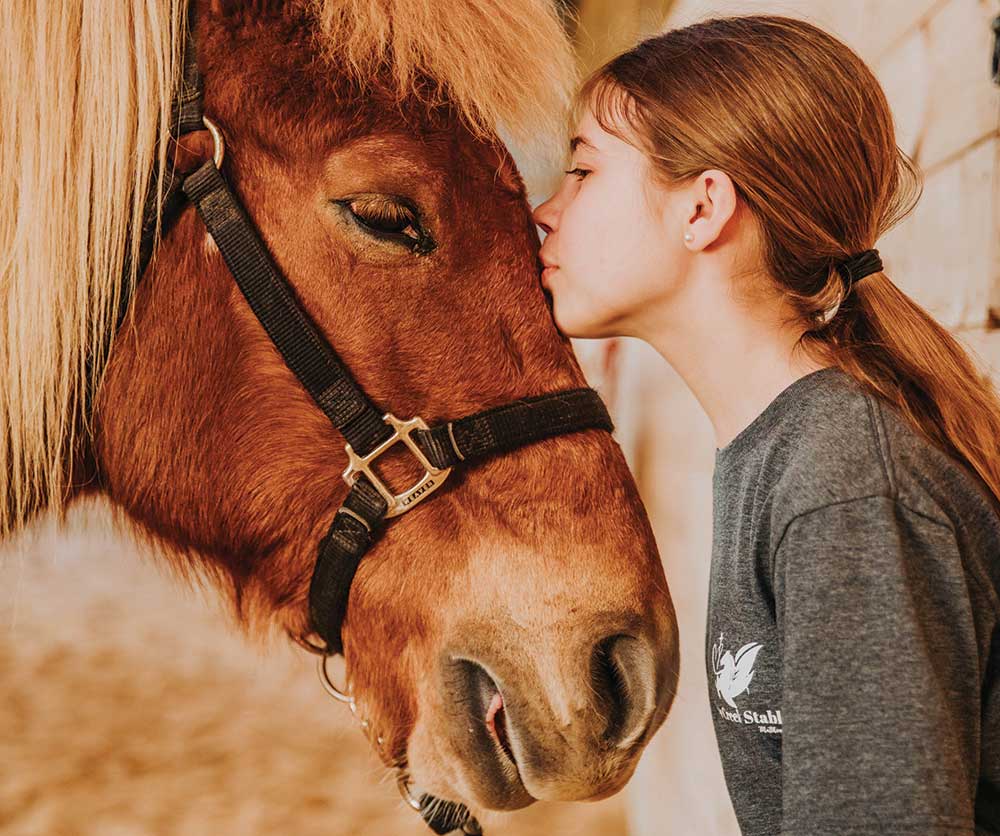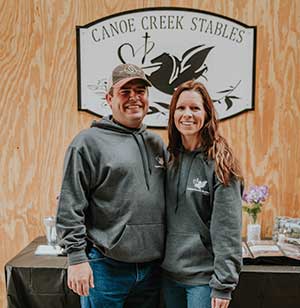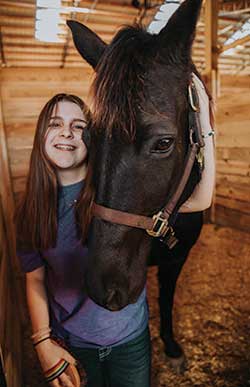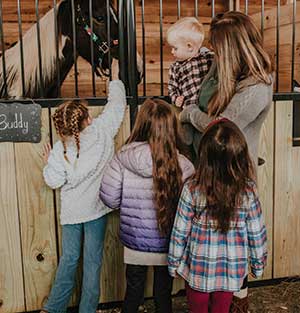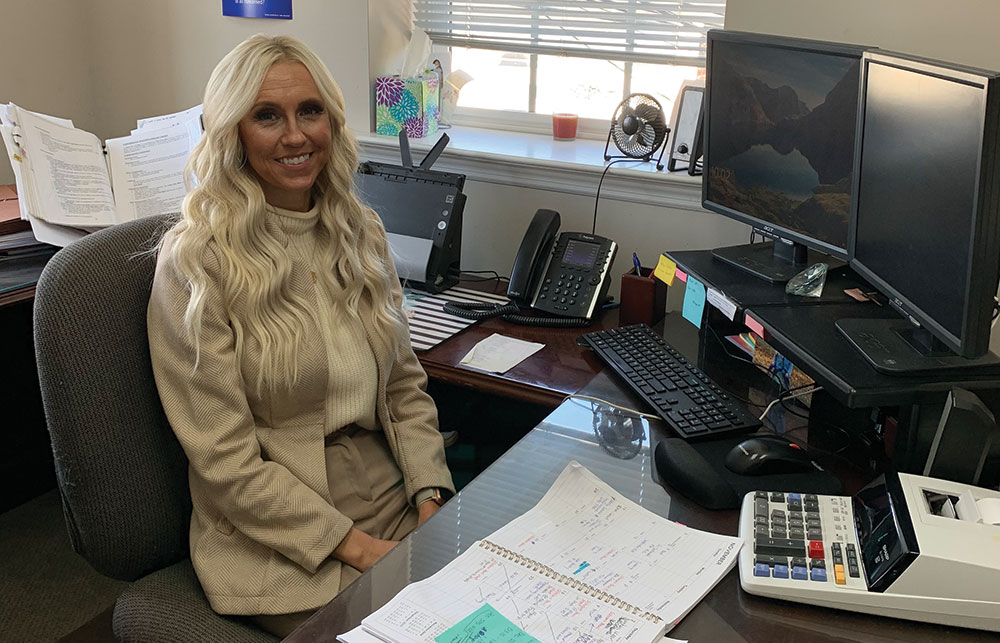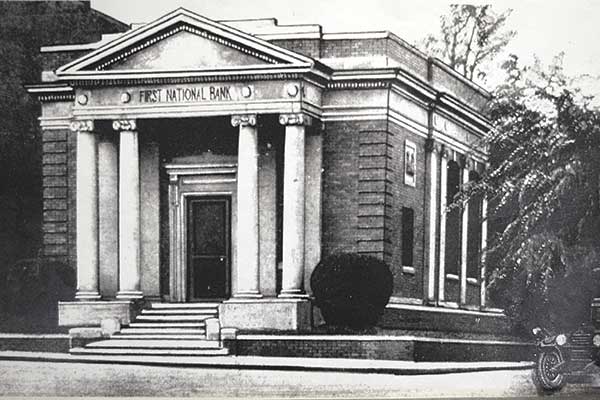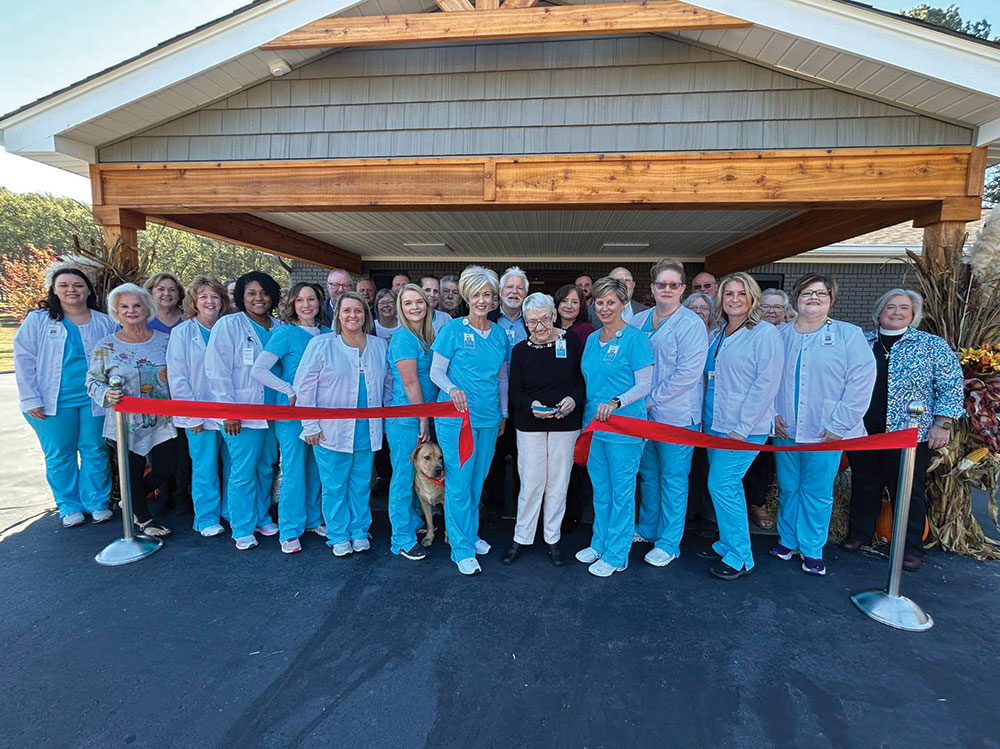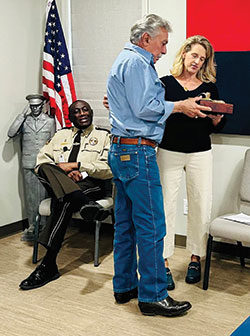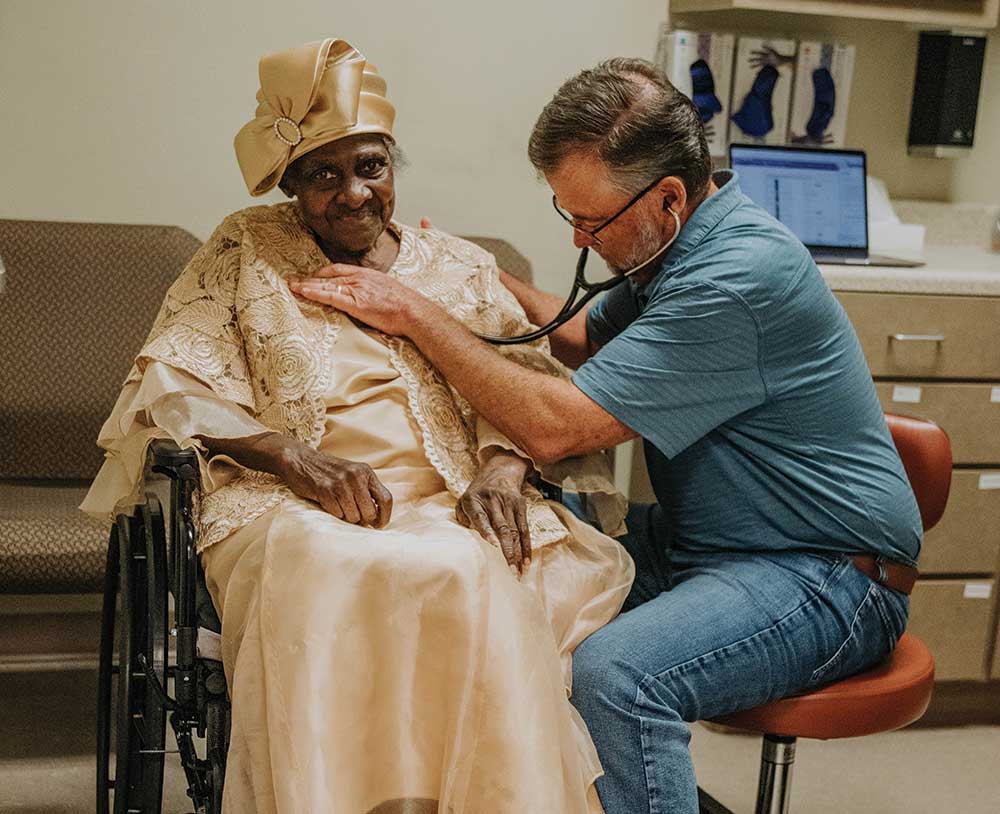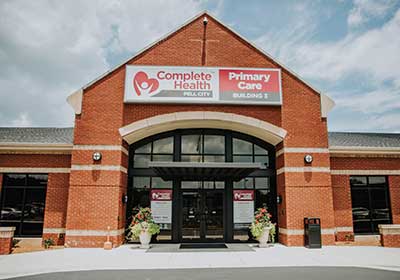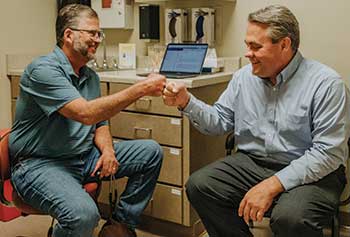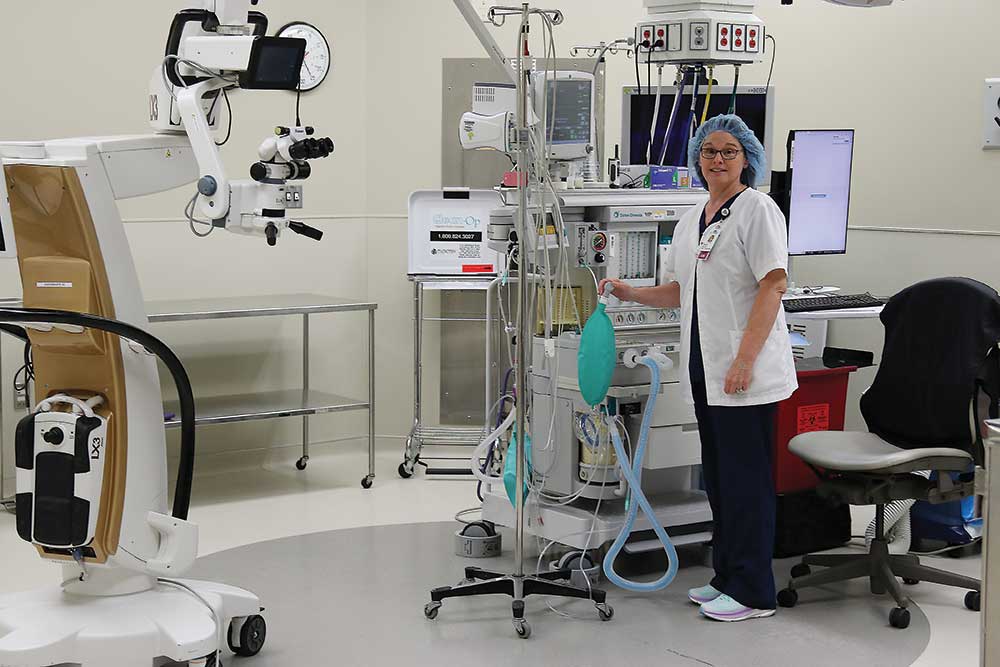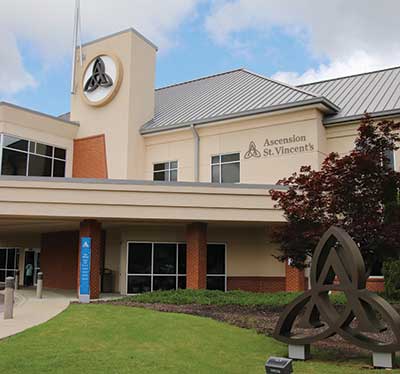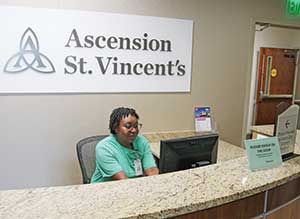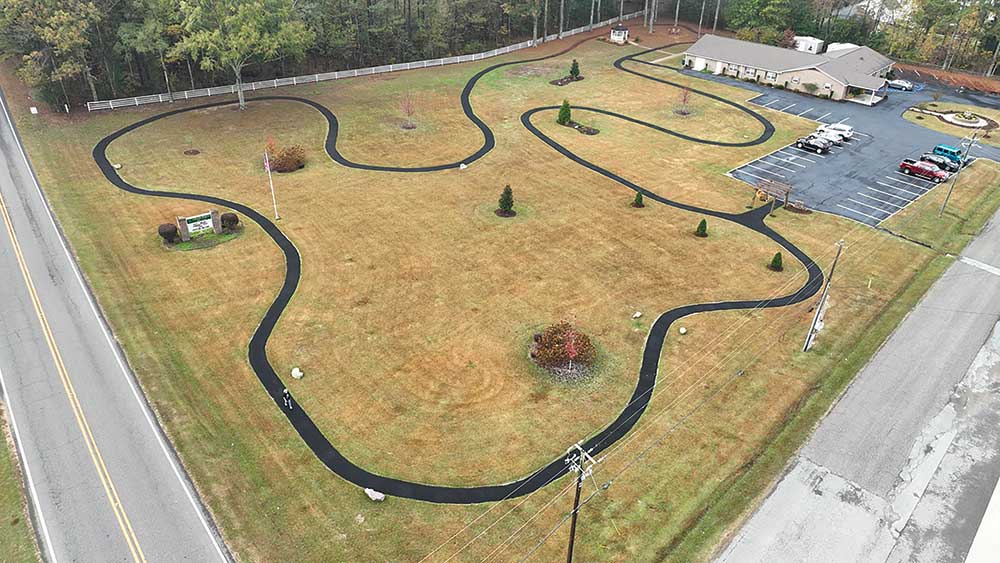New Springville barn uses horses to heal peoples’ bodies and souls
Story by Joe Whitten
Photos by Mackenzie Free
and submitted Photos
“There’s something about the outside of a horse that’s good for the inside of a man.”
While that quote has been wrongly attributed to several famous people, including Winston Churchill and Ronald Reagan, research indicates it probably dates back centuries before they were born.
Nevertheless, the sentiment expresses in a nutshell what Nicole Whitehead Tucker has in mind for Canoe Creek Stables in Springville.
“Canoe Creek Stables is home to Light Of The World Adaptive Horsemanship, a faith-based nonprofit with the mission of helping others heal and grow while enjoying one of God’s greatest gifts, horses,” she says, quoting her mission statement. “We use adaptive horsemanship to provide both physical and emotional benefits to those in need.”
Adaptive Horsemanship is recreational horseback riding and horsemanship lessons adapted for each individual’s needs, goals and abilities. It utilizes mounted and unmounted activities to provide both physical and emotional benefits.
Potential students include autistic children, children suffering from emotional and physical trauma, those with crippling diseases such as cystic fibrosis and veterans suffering from PTSD. Nicole wants to use horses to help these folks and more. That’s why she is working on her certification from CECTH, the Council for Education and Certification in Therapeutic Horsemanship.
Nicole has had horses all of her life. But her dream to use them to help others mentally and physically began when she was a teenager.“My younger brother, Kyle, was born with cystic fibrosis,” she says. “I watched him grow up battling this disease. He inspired me because he never gave up. He died in May of 2019, when he was 29, but he never lost his spirit. I owe a lot of my personal and spiritual growth to him.”
Her husband, Jake, also comes from a horsey family. He lost his brother the year before Nicole lost hers, and it helped Jake develop the same passion she has. “I also want to take horses to places like Children’s Hospital, church events and nursing homes,” Jake says.
“My brother and I talked about doing this for about a month before Kyle passed away,” Nicole says. “I told him about my dream, too, and he said, ‘That’s awesome, Sis.’”
The Tuckers broke ground on a 100 x 100-foot barn on April 1, 2023, after Jake had sketched the design. They contracted to have the outer shell erected, and they finished the inside themselves. “What a journey,” she says. “Jake even built the wooden fence, and he has never done that before. He has no training in carpentry. He was a fuel truck driver for McPherson Oil for 10 years, and now he’s maintenance man at the new Big Canoe Creek Nature Preserve, which is next door to our property.”
One side of the barn measures 30 x 100 feet and has 15 stalls. The arena is 50 x 80 feet and covered with sand, while the other side is 20 x 100 feet and has space for seven more stalls. Ten skylights and a chandelier in the center of the arena light up the premises. “I ordered the chandelier via Amazon, and Jake built a crank system so we can lower and raise it,” Nicole says. When he asked her why she needed a chandelier in the middle of a riding arena, she replied, “For barn dances and fundraisers.”
The structure is bathed in Scripture, literally. Several posts and internal walls are covered in Bible verses because Jake and Nicole invited people to write their favorites on them. Some wrote the Scripture reference, while others scribbled entire verses.
“If you take out the wall panels of the social room, for example, you’ll find the internal walls covered with verses,” Nicole says. “Friends, family members, even the Alabama Power crew and concrete contractor wrote them on studs, posts and the plywood under the paneling there.”
To handle the $250,000 price tag of the barn, the couple dipped into their savings account and took out a loan that comes with $1,400-a-month payments.
Lessons are one hour long, and include riding, grooming, lunging, tacking up, learning the parts of a saddle and building a relationship with the horse. They cost $65 per hour. However, low-income persons can be sponsored through donations and fundraising.
“This barn has been a Band-aid for me,” says Nicole. “In the past few weeks, I’ve had conversations with families about what they are going through, including a couple of people who were autistic, and a couple with sensory disorders. They found me via Facebook.”
She started a Facebook page in October, before the barn was even finished. As of Feb. 29, she had 5,500 followers, but her goal is 10,000. “Imagine if 5,500 people said a prayer for our program,” she says.
The barn houses nine horses and three ponies, with five of those used for equine assisted activities. The others are personal ones. Two activity horses include a white horse and a pony from a woman in Mississippi who learned about Nicole’s mission via mutual friends on Facebook and contacted her. “She drove them over the next day, along with some hay and feed,” Nicole says. “That’s a four-hour trip one way.”
Other donations have included two Haflingers, a brother and sister named Candy and Cane. “These are our two main buggy horses, but we use them in our adaptive horsemanship program, too,” Nicole says. “They were given to the program by the family of my great-uncle in Tennessee, who died in the summer of 2022. We got them that November.”
A more recent equine donation was the return of her “heart horse,” which she had sold when her brother was ill. “As my brother got worse, I started riding less, because I was just too emotional to enjoy it,” she explains. “So, I sold Handsome to a sweet lady in Georgia. I stayed in touch with his new mom for five years, and she’d update me on him from time to time. Then in February she gave him back to me because she wanted him to be part of something special. I still can’t believe it!”
Handsome is a 16-year-old Tennessee Walker with a lot of personality. “We used to compete in local horse shows in Western and English gaited classes,” Nicole says. “I feel like I got a HUGE piece of my heart back. My brother would be so happy!”
Other in-kind donations include the bathroom, three carriages and the sound system for the barn. The donation of the three carriages came as the indirect result of fulfilling another lifelong dream, that of becoming an airline pilot.
“I had wanted to be a pilot since I was 6-years-old,” says Nicole, who is 43. “My grandmother lived near the Birmingham airport, and I grew up lying in her yard and watching the planes go over. I’m stubborn, and I had no back-up plan.”
She got her pilot’s license at 19, started her aviation career as a flight instructor, then did corporate flying to get jet experience. Later, she was a commercial pilot for ExpressJet, a regional airline, for five years. She quit to start a family. “I’ve gone back to corporate aviation so I can control my schedule,” she says.
During the Springville Christmas Parade of 2022, she saw people like the homecoming queen riding in cars, and joked to her husband about how great it would be to have a carriage so she could auction a seat in it and donate the proceeds to a charity. The next day while she was co-piloting a corporate client to a meeting in Texas, he came into the cockpit and struck up a conversation.
“I showed him pictures of our horses and told him about my dream, and when we landed back in Birmingham later that day, he asked if he could talk to me. He said he had three carriages he wanted to donate, and he did. He paid for the delivery of the first one, and we picked up the other two.”
And that’s why an additional side of the barn was added to the original plans. The carriages include a Purple Princess that has hydraulic brakes and battery-operated lights, an Amish buggy and a covered wagon.
Other animals besides horses are being added to the mix. “We were given a five-day-old lamb whose mother rejected her, and we are working on adding more little critters to the barn, including a mini cow,” she says.
“We will also be taking over the petting zoo at Homestead Hollow this year. I’ll be working the May events with Anne Sargent, who has run it for 10 years. She’s going to show me the ropes, and then I’ll take over for future Homestead Hollow weekends. The petting zoo will be a big part of our barn, as it will bring lots of smiles to children. I’m so excited!”
And what about those “dream crushers,” the people who said she and Jake can’t do it, it won’t happen, they need deep pockets to make this dream come true? Nicole says phooey! “Think of what would not be accomplished except through deep faith.”














